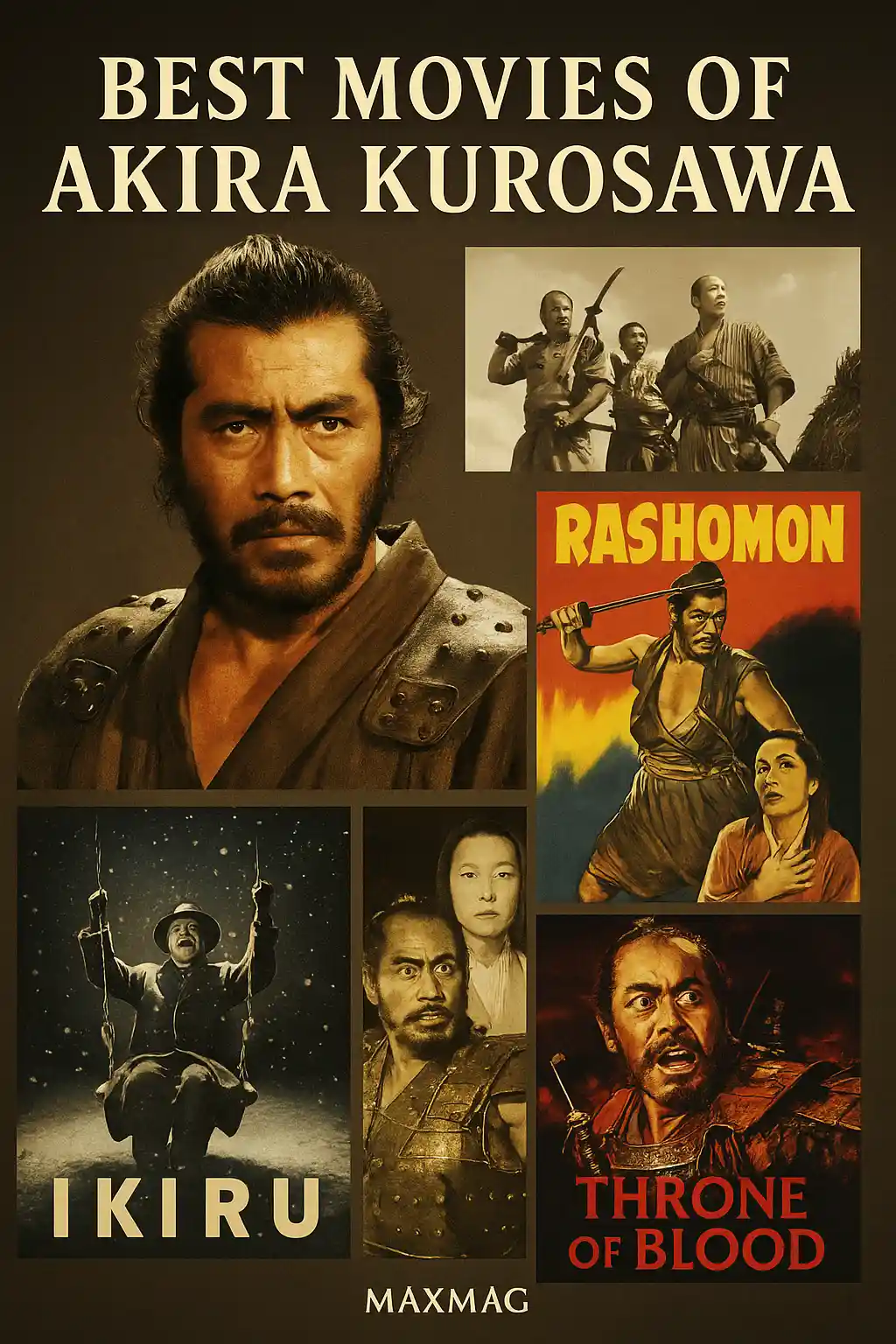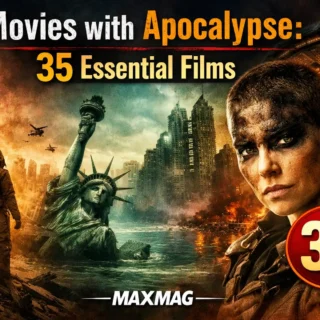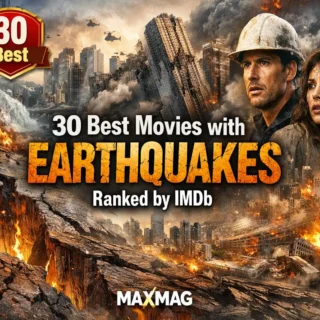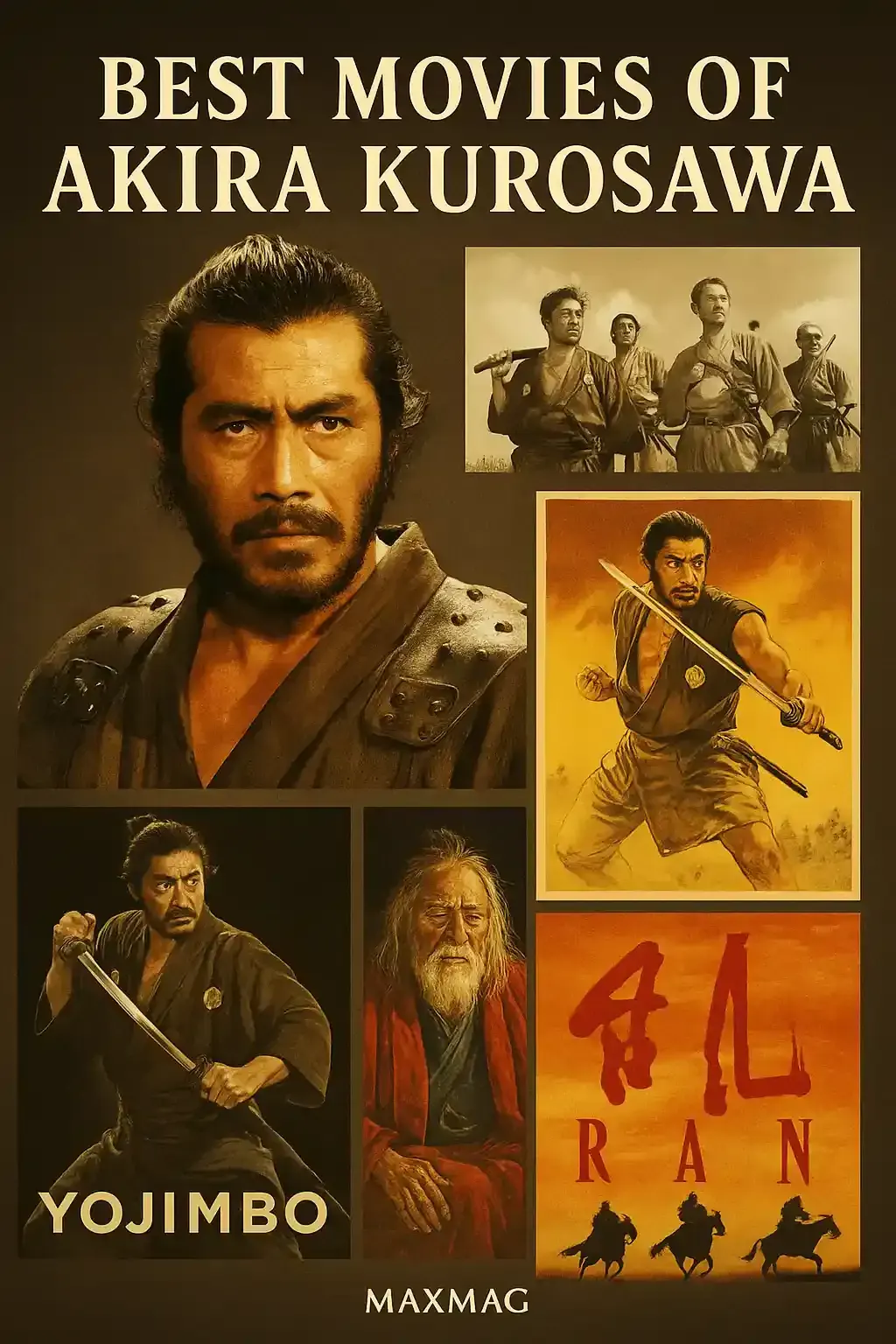
Akira Kurosawa is one of cinema’s most influential figures, whose films have shaped storytelling across the globe. Known for his meticulous direction, profound humanism, and pioneering cinematic techniques, Kurosawa created works that have inspired generations of filmmakers, from George Lucas to Martin Scorsese. This article dives into the Best Movies of Akira Kurosawa, celebrating 15 iconic films that showcase his artistry, narrative depth, and mastery of visual storytelling.
Whether it’s the timeless heroism of Seven Samurai, the moral ambiguity of Rashomon, or the haunting political intrigue of The Bad Sleep Well, these films demonstrate why the Best Movies of Akira Kurosawa remain relevant decades later. Each entry below blends drama, philosophy, and visual brilliance in ways few directors have matched.
15. The Bad Sleep Well (1960)
-
Runtime: 151 minutes
-
Starring: Toshiro Mifune, Masayuki Mori, Kyōko Kagawa
-
Director: Akira Kurosawa
-
Genre: Drama, Crime, Thriller
-
IMDb Rating: 8.0
A gripping tale of corporate corruption and revenge, The Bad Sleep Well channels Kurosawa’s love for Shakespearean tragedy into the modern world. Loosely inspired by Hamlet, the film follows Koichi Nishi, played by Toshiro Mifune, as he navigates a world of deceit and betrayal in an effort to expose the executives responsible for his father’s death. Kurosawa crafts a meticulous web of tension through long takes, deliberate pacing, and a visual language that emphasizes moral decay. The opening wedding sequence alone is a masterclass in character introduction and thematic setup. This work stands as proof that the Best Movies of Akira Kurosawa extend far beyond samurai epics, delving deep into post-war Japan’s power structures.
14. Dreams (1990)
-
Runtime: 119 minutes
-
Starring: Akira Terao, Mitsuko Baisho, Toshie Negishi
-
Director: Akira Kurosawa
-
Genre: Fantasy, Drama
-
IMDb Rating: 7.8
Dreams is an anthology film directly inspired by Kurosawa’s own personal dreams and nightmares, making it one of his most intimate projects. Each of the eight segments reflects a different theme, from environmental devastation to cultural heritage. Highlights include “Crows,” where a young artist meets Vincent van Gogh (played by Martin Scorsese), and “Mount Fuji in Red,” a terrifying vision of nuclear disaster. The painterly use of color, meticulous set design, and poetic pacing create a meditative experience. By weaving his subconscious into cinematic form, Kurosawa delivers a work that is both personal and universal — a reminder that the Best Movies of Akira Kurosawa could be as visually experimental as they were emotionally resonant.
13. Red Beard (1965)
-
Runtime: 185 minutes
-
Starring: Toshiro Mifune, Yuzo Kayama, Tsutomu Yamazaki
-
Director: Akira Kurosawa
-
Genre: Drama
-
IMDb Rating: 8.3
Red Beard is an expansive human drama set in a rural clinic in 19th-century Japan. It tells the story of a young, arrogant doctor who is reluctantly assigned to work under the wise and compassionate Dr. Niide — nicknamed “Red Beard” — played by Mifune in one of his most nuanced performances. Over time, the apprentice learns that true healing requires empathy, humility, and moral strength. Kurosawa’s framing and use of light capture both the beauty and harshness of life among the poor. The film’s three-hour runtime allows for an almost novelistic depth, with multiple subplots that explore love, loss, and redemption. For many critics, this stands among the Best Movies of Akira Kurosawa because of its deep humanism.
12. Dersu Uzala (1975)
-
Runtime: 144 minutes
-
Starring: Maksim Munzuk, Yuri Solomin
-
Director: Akira Kurosawa
-
Genre: Adventure, Drama
-
IMDb Rating: 8.3
Winner of the Academy Award for Best Foreign Language Film, Dersu Uzala marked Kurosawa’s only film made outside Japan. Shot in the Soviet Union, it tells the true story of the friendship between a Russian explorer and a Siberian hunter. The film is a sweeping meditation on humanity’s relationship with nature, filled with breathtaking panoramic shots of forests, rivers, and snow-covered plains. Through Dersu’s wisdom and tragic fate, Kurosawa reflects on the inevitable erosion of traditional ways of life. This poetic and contemplative piece stands apart in tone from his samurai epics, yet firmly belongs among the Best Movies of Akira Kurosawa for its universal themes and unmatched visual beauty.
11. Stray Dog (1949)
-
Runtime: 122 minutes
-
Starring: Toshiro Mifune, Takashi Shimura
-
Director: Akira Kurosawa
-
Genre: Crime, Drama, Mystery
-
IMDb Rating: 7.9
Often described as a Japanese film noir, Stray Dog is set in the sweltering heat of post-war Tokyo. It follows Detective Murakami (Mifune) on a desperate search for his stolen pistol, which ends up in the hands of a criminal. The narrative unfolds as a tense cat-and-mouse game, but the real power of the film lies in its depiction of a city grappling with poverty, disillusionment, and moral uncertainty. The sweaty, claustrophobic cinematography draws viewers into the oppressive atmosphere, making Stray Dog a gripping early example of why the Best Movies of Akira Kurosawa resonate beyond their immediate plots.
10. Kagemusha (1980)
-
Runtime: 180 minutes
-
Starring: Tatsuya Nakadai, Tsutomu Yamazaki
-
Director: Akira Kurosawa
-
Genre: Drama, History, War
-
IMDb Rating: 8.0
Kagemusha, which translates to “shadow warrior,” is a sprawling tale of identity, loyalty, and deception. When a powerful warlord dies, his generals recruit a petty thief — who happens to be his exact double — to impersonate him and keep the clan from fracturing. The film’s battle scenes, choreographed with military precision, are complemented by scenes of quiet introspection, exploring the psychological toll of living a lie. Kurosawa’s use of vivid color and painterly compositions elevates the historical drama into a visual feast, firmly securing it a place among the Best Movies of Akira Kurosawa.
9. The Hidden Fortress (1958)
-
Runtime: 139 minutes
-
Starring: Toshiro Mifune, Misa Uehara
-
Director: Akira Kurosawa
-
Genre: Adventure, Drama
-
IMDb Rating: 8.1
A thrilling adventure told partly from the perspective of two bumbling peasants, The Hidden Fortress combines action, comedy, and political intrigue. General Rokurota (Mifune) must escort a princess and her treasure through enemy territory, facing ambushes and betrayals. The film’s dynamic camera movements and innovative use of widescreen influenced George Lucas when creating Star Wars. Its mix of humor and heroism demonstrates Kurosawa’s range, proving that the Best Movies of Akira Kurosawa could appeal to both critics and general audiences.
8. High and Low (1963) – A Masterwork of Suspense
-
Runtime: 143 minutes
-
Starring: Toshiro Mifune, Tatsuya Nakadai
-
Director: Akira Kurosawa
-
Genre: Crime, Drama, Thriller
-
IMDb Rating: 8.4
This tense crime drama begins with a kidnapping plot and evolves into a deep exploration of morality and class. When a wealthy businessman learns that the child kidnapped is not his own but his chauffeur’s, he must decide whether to pay the ransom. Kurosawa’s precise direction, combined with a two-part narrative structure, keeps viewers riveted. The first half is set almost entirely in the businessman’s home, building unbearable tension, while the second half transforms into a procedural manhunt. It’s a masterclass in pacing, and unquestionably one of the Best Movies of Akira Kurosawa.
7. Sanjuro (1962)
-
Runtime: 96 minutes
-
Starring: Toshiro Mifune, Tatsuya Nakadai
-
Director: Akira Kurosawa
-
Genre: Action, Comedy, Drama
-
IMDb Rating: 8.1
A witty sequel to Yojimbo, Sanjuro follows the wandering ronin as he helps a group of young samurai root out corruption in their clan. Unlike the darker tone of its predecessor, this film leans into comedy without sacrificing tension. The climactic sword duel is one of Kurosawa’s most memorable, ending with a shock of violence after a long build-up. This balance of lightheartedness and deadly seriousness is part of what makes it one of the Best Movies of Akira Kurosawa.
6. Yojimbo (1961)
-
Runtime: 110 minutes
-
Starring: Toshiro Mifune, Eijirō Tōno
-
Director: Akira Kurosawa
-
Genre: Action, Drama, Thriller
-
IMDb Rating: 8.2
A wandering samurai manipulates two rival factions in a lawless town for his own benefit, creating chaos in the process. Mifune’s performance as the laconic, cunning hero became instantly iconic. The film’s visual style, with its dynamic camera work and dusty, wind-swept streets, set a new standard for action cinema. It has inspired countless adaptations, cementing its status among the Best Movies of Akira Kurosawa.
5. Ran (1985)
-
Runtime: 162 minutes
-
Starring: Tatsuya Nakadai, Akira Terao
-
Director: Akira Kurosawa
-
Genre: Drama, War
-
IMDb Rating: 8.2
Kurosawa’s epic adaptation of King Lear is a towering achievement of cinematic art. With sprawling battle scenes, vivid costumes, and an operatic sense of tragedy, Ran reflects on the destructive power of pride and ambition. The film’s visual grandeur and meticulous choreography make it one of the Best Movies of Akira Kurosawa and one of the most visually striking war films ever made.
4. Throne of Blood (1957)
-
Runtime: 110 minutes
-
Starring: Toshiro Mifune, Isuzu Yamada
-
Director: Akira Kurosawa
-
Genre: Drama, War
-
IMDb Rating: 8.1
A reimagining of Macbeth, Throne of Blood combines Shakespeare’s narrative with the stylized performances and minimalism of Noh theater. Mifune’s portrayal of the doomed warlord is both ferocious and tragic, while the fog-covered landscapes heighten the sense of foreboding. This fusion of Western literature and Japanese tradition marks it as one of the Best Movies of Akira Kurosawa.
3. Ikiru (1952)
-
Runtime: 143 minutes
-
Starring: Takashi Shimura, Shinichi Himori
-
Director: Akira Kurosawa
-
Genre: Drama
-
IMDb Rating: 8.3
Ikiru is a deeply moving exploration of life’s meaning. After being diagnosed with terminal cancer, a bureaucrat sets out to find purpose in his remaining days. The film’s restrained cinematography and compassionate storytelling make it an enduring masterpiece. Its central message — that even small acts can leave a lasting impact — ensures its place among the Best Movies of Akira Kurosawa.
2. Rashomon (1950)
-
Runtime: 88 minutes
-
Starring: Toshiro Mifune, Machiko Kyō
-
Director: Akira Kurosawa
-
Genre: Crime, Drama, Mystery
-
IMDb Rating: 8.2
Rashomon revolutionized narrative cinema with its use of multiple, conflicting viewpoints to depict the same event. The philosophical implications — about truth, memory, and perception — are as relevant today as they were in 1950. It’s a defining work in the Best Movies of Akira Kurosawa canon.
1. Seven Samurai (1954) – The Pinnacle of Kurosawa’s Art
-
Runtime: 207 minutes
-
Starring: Toshiro Mifune, Takashi Shimura
-
Director: Akira Kurosawa
-
Genre: Action, Drama
-
IMDb Rating: 8.6
An epic tale of sacrifice, honor, and unity, Seven Samurai follows a group of warriors who defend a village from marauding bandits. Every aspect — from the character arcs to the battle choreography — is executed with precision and heart. Often considered the greatest film in Japanese history, it stands unchallenged as the very best among the Best Movies of Akira Kurosawa.
Conclusion about the Best Movies of Akira Kurosawa
Akira Kurosawa’s legacy is a testament to the enduring power of storytelling, visual artistry, and universal human themes. From the sweeping battlefields of Seven Samurai to the intimate personal journey of Ikiru, his works continue to inspire audiences and filmmakers around the globe. The Best Movies of Akira Kurosawa are not just cinematic milestones — they are cultural treasures that bridge East and West, blending Japanese tradition with global accessibility.
For those who want to explore his artistry in greater depth, the National Film Archive of Japan offers access to rare Kurosawa-related materials and screenings, providing invaluable insights into his craft. Additionally, The Japan Foundation’s Film Library presents an impressive range of Japanese classics, including restored Kurosawa works, ensuring that his genius will be preserved for generations to come.
Kurosawa once said, “To be an artist means never to avert one’s eyes.” His career embodied that philosophy, making his films as vital today as when they first graced the screen.
Frequently Asked Questions about the Best Movies of Akira Kurosawa
Q1: What is Akira Kurosawa’s most famous film?
Q2: Which Kurosawa films influenced Star Wars?
Q3: Did Kurosawa make non-samurai films?
Q4: How many films did Kurosawa direct?
Q5: Which Kurosawa film won an Oscar?









